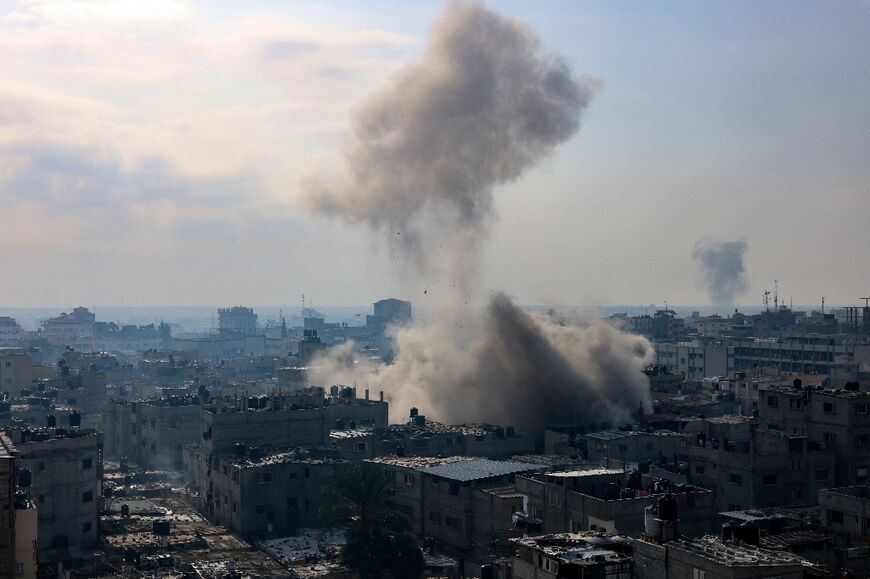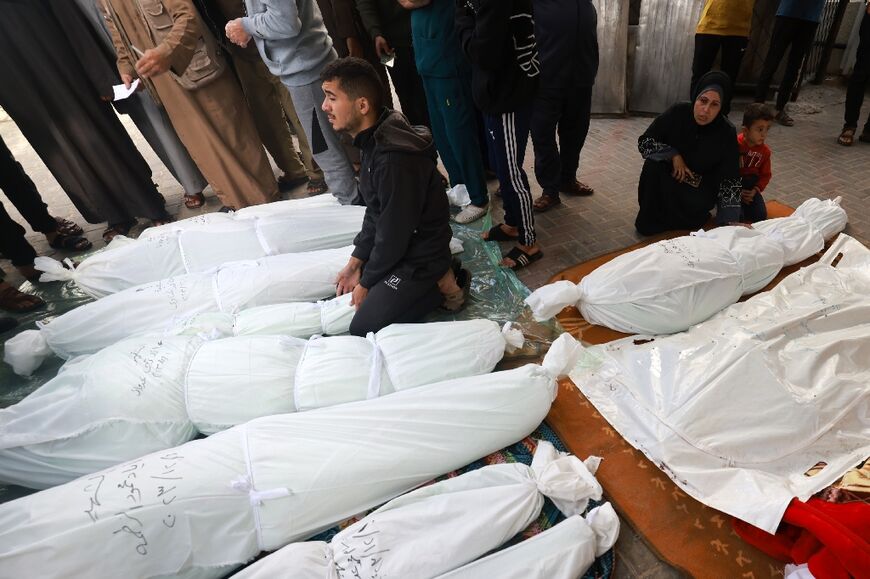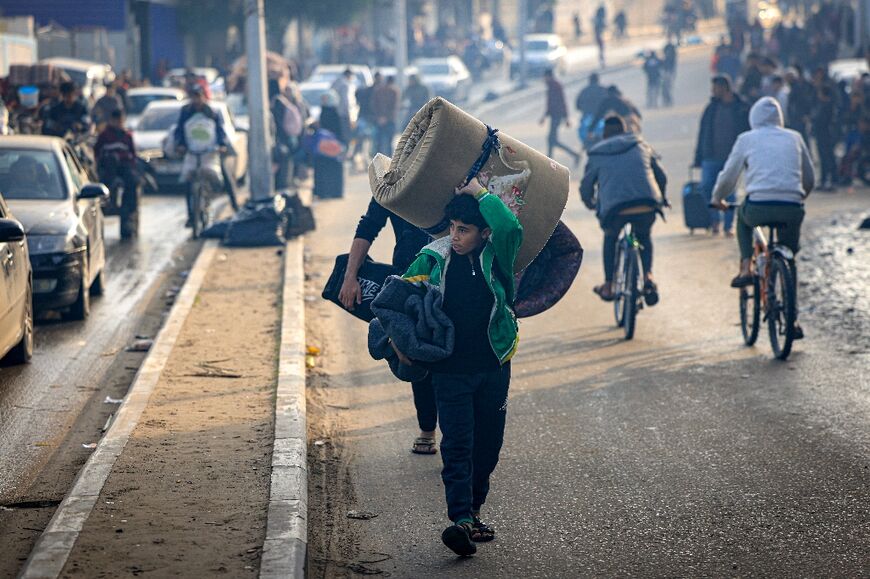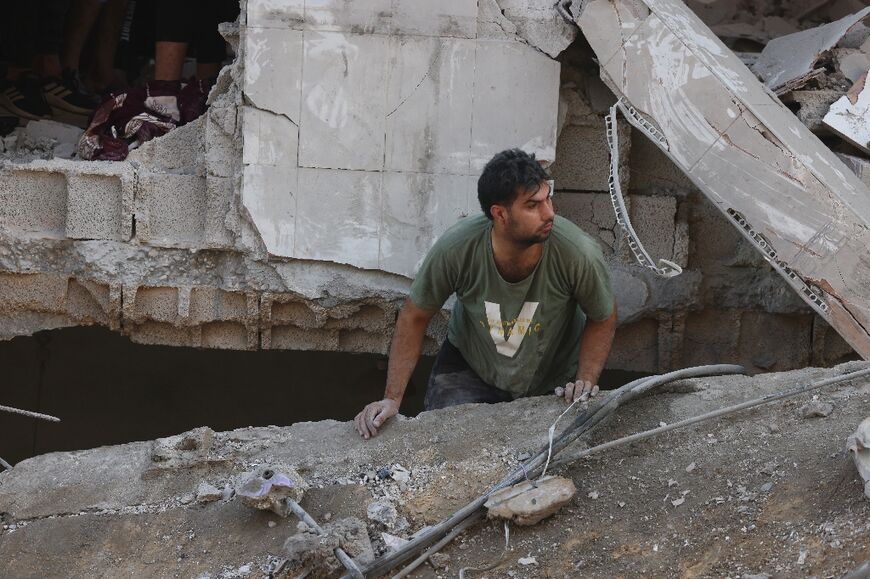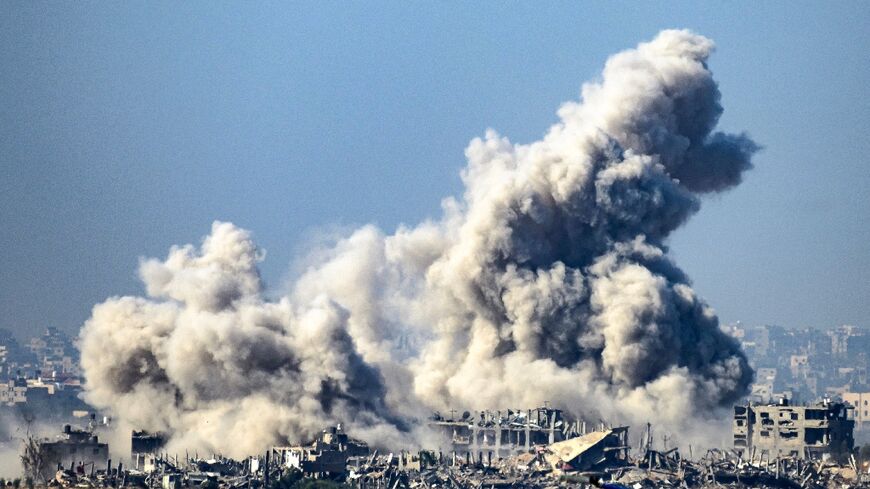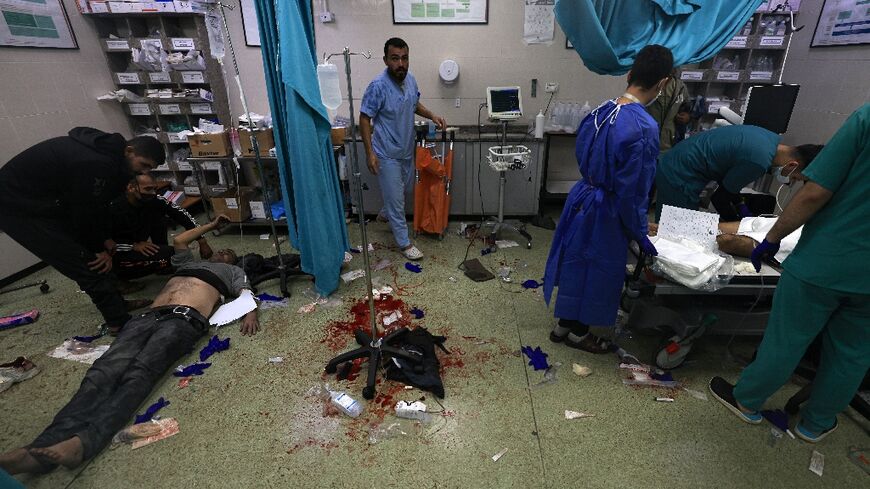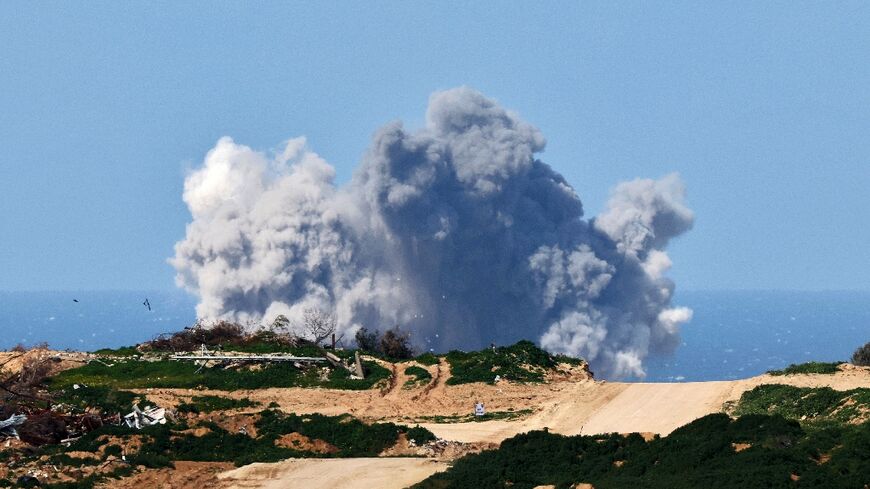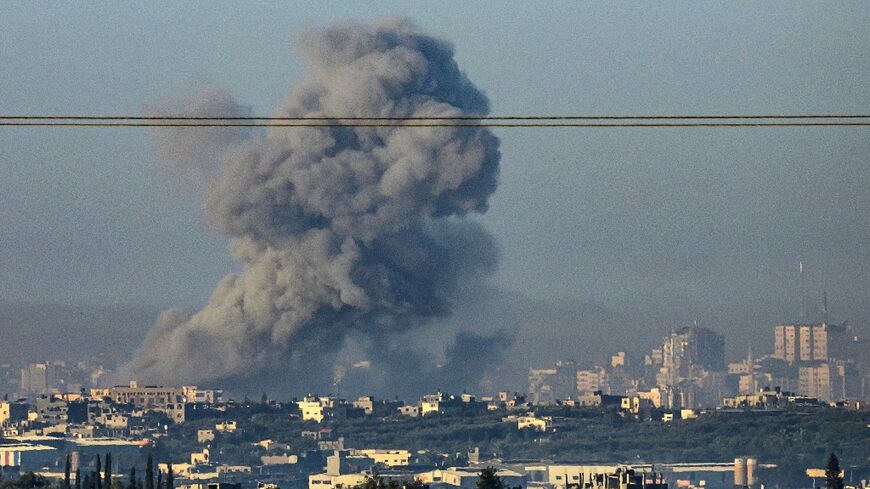Gazans flee homes, dig through rubble as Israeli strikes resume

In the rubble of a house destroyed by bombs in the southern Gazan city of Rafah, a man screamed: "Where are my children?"
Similar scenes played out across the devastated Gaza Strip on Friday, as residents fled their homes and rushed their dead and wounded to hospitals after hostilities resumed between Israel and Hamas following the expiry of a week-long truce.
An extension to the pause in fighting -- under which aid flows into Gaza had increased and scores of Israeli hostages were exchanged for hundreds of jailed Palestinian prisoners -- could not be reached before the 7:00 am (0500 GMT) deadline.
As Israeli air strikes landed, Gazans poured out of their homes to head for safer areas, packing the streets with cars, pick-up trucks, tractors, mule carts, bicycles and, most of all, people on foot.
In Khan Yunis, where smoke billowed across the sky, a group of men shouted "God is greatest" as they rushed through the streets carrying a body wrapped in a white shroud.
"There's bombing everywhere. We have no food, no water, no clothes. The stores are closed, it's cold, and the border checkpoint is closed," said Marwa Saleh, 47, who had sought refuge in Khan Yunis after being displaced from Gaza City in the north.
"When is the world going to see us as human beings?" she asked.
- 'Even more fierce' -
Israel has vowed to destroy Hamas after its bloody October 7 attack, which killed 1,200 people, most of them civilians, according to Israeli officials.
In the nearly two months between the attack and the implementation of the truce a week ago, its relentless air and ground campaign against the militant group killed more than 15,000 people, also mostly civilians, according to Gaza's Hamas-run government.
On Friday, within three hours of the truce lapsing, the Hamas-run health ministry said around 30 people had been killed across the territory, children among them.
Sitting on a bed at Khan Yunis's Nasser hospital, Amal Abu Dagga wept, her beige veil covered in blood.
"I don't even know what happened to my children," she said.
A relative, Jamil Abu Dagga, told AFP the family had been at home when the bombs started falling.
"My house was destroyed, so was my neighbour's," he said from the same hospital, his head bandaged.
Another member of the family, Anas Abu Dagga, 22, said the "war has returned, even more fierce".
- 'War on children' -
At the hospital reception, 10-year-old Lina Hamdan said: "We were getting ready to sleep when I heard a bomb. My brothers started screaming."
In Rafah, where many Palestinians fled after being told by Israel to leave the north of the territory, a young man rushed a badly wounded child out of a refugee camp hit by an explosion, while others could be seen pulling a motionless person from the rubble.
One of the displaced, Manal Mohammad, told AFP she was staying in a house in Rafah crammed with dozens of relatives, and did not know what more she could do.
"They're bombing everywhere. Where do you want us to go?" she said.
"We told ourselves that the truce was going to last and were going to return home," she continued, but "they don't want us to live".
"They tell the people, 'go to the south', and once they're there, they tell them, 'go to the west', and they bomb them."
In the north of the Gaza Strip, a fireball from a large explosion could be seen from across the border in the Israeli city of Sderot, and an AFPTV camera broadcast live footage of rolling clouds of grey smoke and the sounds of automatic gunfire within the first 90 minutes of the truce expiring.
Speaking from an unnamed hospital in Gaza, UNICEF spokesman James Elder said in a video posted to X, formerly Twitter, on Friday that a bomb had landed "literally 50 metres (yards) away".
"I cannot overstate how much the capacity of hospitals has been reduced," he said. "We cannot see more children with the wounds of war, with the burns, with the shrapnel littering their body, with the broken bones."
"This is a war on children," he added.
Marwa Saleh, the Gaza City native seeking refuge in Khan Yunis, said she and her family were civilians, and had "nothing to do with this war".
"I don't want to die and I don't want to lose anyone."
